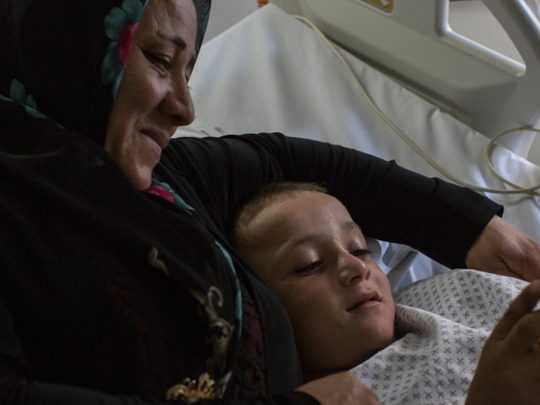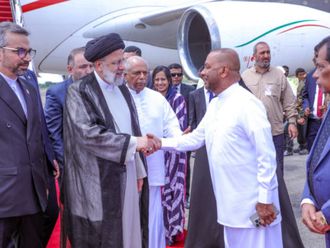
During a visit to the dentist six years ago in Aleppo, Badriyeh Hayan learnt the truth about her quiet son Mohammad, then four. The dentist noticed that the young boy did not respond to his mother’s voice, he was deaf.
Tests confirmed that both Mohammad and his younger brother Issam had been born deaf. On her husband Abdul Latif’s meagre wages, a costly cochlear implant surgery for her sons was impossible.
Syria’s worsening conflict forced the family to flee to Beirut, after their house was destroyed in heavy shelling. They moved to an informal tented settlement in Lebanon, where roughly one million registered Syrian refugees live in extreme poverty.
In June 2017, United Nations High Commissioner for Refugees (UNHCR), organised a visit by prominent Lebanese journalist Rima Maktabi to the settlement. A video of her meeting Mohammad and Issam and interacting with them using sign language went viral, and resulted in the Kuwaiti Red Crescent offering to pay more than $50,000 to cover the cost of their surgery.
UNHCR, contacted Hayan to help with the surgery. The four-hour operation was a success. Within two months both boys began to hear sounds for the first time.
The boys will finally be able to go to school. They now have sessions at the hospital to help them speak clearly.
According to Mohammad Abu Asaker, UNHCR’s Senior Regional Public Information Officer: “Social media changes lives. Mohammad and Issam’s experience is a testament to the power of online communities... in making a difference.”
Of the total 5.48 million refugees from the conflict in Syria, aid organisations estimate that one in five has a physical, sensory or intellectual impairment. In situations of forced displacement, those with disabilities often face barriers to accessing services such as education.












